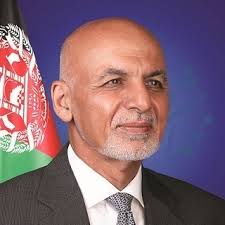Islamabad/Kabul
The Taliban say they don’t want to monopolize power, but they insist there won’t be peace in Afghanistan until there is a new negotiated government in Kabul and President Ashraf Ghani is removed.
In an interview with The Associated Press, Taliban spokesman, Suhail Shaheen, who is also a member of the group’s negotiating team, laid out the insurgents’ stance on what should come next in a country on the precipice.
Shaheen said the Taliban will lay down their weapons when a negotiated government acceptable to all sides in the conflict is installed in Kabul and Ghani’s government is gone.
“I want to make it clear that we do not believe in the monopoly of power because any governments who (sought) to monopolize power in Afghanistan in the past, were not successful governments,” said Shaheen, apparently including the Taliban’s own five-year rule in that assessment. “So we do not want to repeat that same formula.”
But he was also uncompromising on the continued rule of Ghani, calling him a war monger and accusing him of using his Tuesday speech on the Eid-al-Adha to promise an offensive against the Taliban.
Shaheen dismissed Ghani’s right to govern, resurrecting allegations of widespread fraud that surrounded Ghani’s 2019 election win. After that vote, both Ghani and his rival Abdullah Abdullah declared themselves president. After a compromise deal, Abdullah is now No. 2 in the government and heads the reconciliation council.
Shaheen called the talks a good beginning.
But he said the government’s repeated demands for a ceasefire while Ghani stayed in power were tantamount to demanding a Taliban surrender. “They don’t want reconciliation, but they want surrendering,” he said.
Before any ceasefire, there must be an agreement on a new government “acceptable to us and to other Afghans,” he said. Then “there will be no war.”
Shaheen said under this new government, women will be allowed to work, go to school, and participate in politics, but will have to wear the hijab, or headscarf.
He said women won’t be required to have a male relative with them to leave their home, and that Taliban commanders in newly occupied districts have orders that universities, schools and markets operate as before, including with the participation of women and girls.








